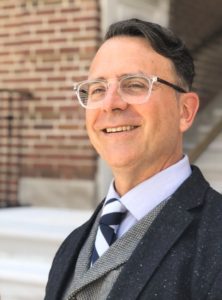Bona Verba from the Headmaster
Language shapes our thoughts, influences our behavior, and defines our relationships. At Cincinnati Classical Academy, we recognize that this powerful tool carries both tremendous potential and significant responsibility. As an institution committed to equality and human dignity, we strive to foster an environment where communication embodies clarity, respect, and mutual understanding.
The dynamic nature of language presents unique challenges in educational settings. Words evolve over time, acquiring new meanings while retaining historical connotations. This evolution can create complex situations where seemingly innocent usage conflicts with deeper historical context. A pressing example of this phenomenon is the word “monkey.” Historically, this term has been used as a racial slur to demean people of African descent. However, among younger generations, the word has developed a new usage as a casual term for anyone acting foolishly or mischievously.
College-age students and even younger adolescents increasingly use this term in casual speech, often without awareness of its fraught history. While linguistic evolution is natural, the historical weight of words does not simply disappear when new meanings emerge. Instead, these past connotations persist, creating potential for misunderstanding, harm, and even intentional misuse. Words, after all, are not just neutral tools; they carry cultural and historical weight that influences how they are perceived and received. What might seem like harmless teasing to one student could be deeply hurtful to another.
CLASSICAL’s mission centers on the fundamental belief that every individual possesses innate dignity—a principle that must be reflected in all forms of communication within our community. We understand that words are not merely neutral tools but carriers of cultural and historical significance that influence how they are received and interpreted. What one student intends as light-hearted banter may deeply affect another, regardless of intention. Even if a term has taken on a more benign meaning in some circles, its historical implications cannot be ignored.
Our approach to language education is proactive and comprehensive. We integrate discussions about language responsibility across our curriculum, particularly in literature and history classes, where students learn to examine how context and history shape the meaning and impact of words. Through these discussions, we emphasize critical thinking about word choice and its potential consequences, and our faculty guides students in understanding how language can either unite or divide communities.
At CLASSICAL, we advocate for thoughtful communication that prioritizes clarity and respect. The presence of any name-calling, even when used without malice, is unacceptable in our academic setting, where our goal is to foster intellectual and personal growth in a supportive environment. While some may view restrictions on certain terms as overly cautious, we believe this approach serves several important purposes. It acknowledges the complex nature of language and its varied impact on different individuals, prepares students for success in various professional and social environments, demonstrates respect for our community’s varied experiences and perspectives, and helps prevent unintended harm and misunderstandings.
As our students develop into articulate, considerate individuals, they learn that effective communication requires more than just good intentions. It demands awareness, empathy, and understanding. This knowledge becomes increasingly valuable as they enter workplaces and communities where the ability to communicate respectfully and effectively is essential for success.
The commitment to human dignity at Cincinnati Classical Academy extends beyond policy. It represents our dedication to developing thoughtful communicators who understand and respect the power of their words. Through this approach, we prepare our students not just for academic success, but for meaningful participation in a complex world. In doing so, we cultivate an environment where language serves its highest purpose: fostering understanding, building connections, and upholding the dignity of each and every person.
Torches Up!
Mr. Michael Rose
Headmaster

Mr. Michael Rose
Meet the Headmaster
Mr. Rose has taught various courses at Brown University, Cincinnati Moeller, and The Summit Country Day School. As a part of his degree work in education, Mr. Rose’s research interests included the Great Books curriculum, the Paideia teaching method, and the “effects of emerging digital technology on student reading, writing, and researching.” Read More

